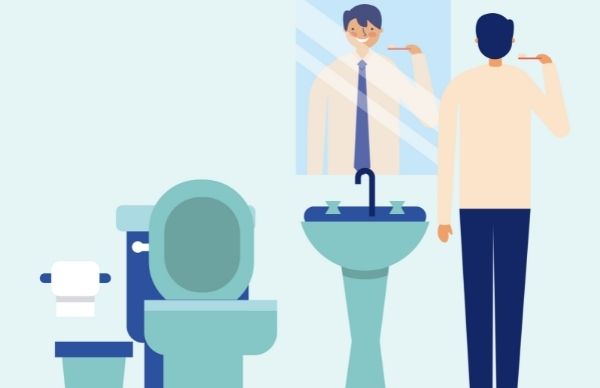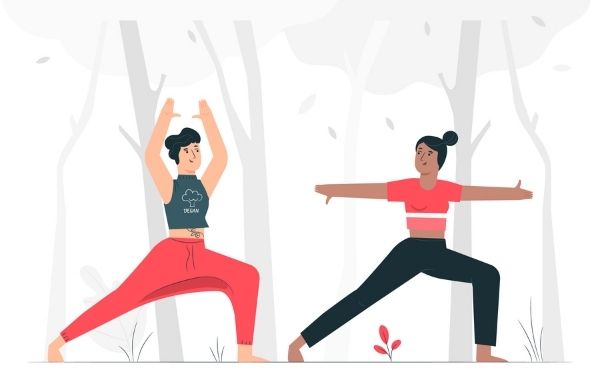Just In
- 1 hr ago

- 2 hrs ago

- 4 hrs ago

- 12 hrs ago

Don't Miss
- News
 PM Modi Runs 'School Of Corruption', Teaching 'Entire Corruption Science': Rahul Gandhi
PM Modi Runs 'School Of Corruption', Teaching 'Entire Corruption Science': Rahul Gandhi - Finance
 Senior Citizens Benefits: Top Banks Offer High FD Interest Rates
Senior Citizens Benefits: Top Banks Offer High FD Interest Rates - Sports
 IPL 2024: Robin Uthappa On What Could Be The Only Factor Stopping MS Dhoni From Playing Beyond This Season
IPL 2024: Robin Uthappa On What Could Be The Only Factor Stopping MS Dhoni From Playing Beyond This Season - Movies
 Metro In Dino: When Ananya Panday Warns Sara Ali Khan Not To Touch Aditya Roy Kapur As She Pairs Up With Him
Metro In Dino: When Ananya Panday Warns Sara Ali Khan Not To Touch Aditya Roy Kapur As She Pairs Up With Him - Technology
 Garena Free Fire Max Redeem Codes for April 20, 2024: Get Access to the Latest In-game Loot
Garena Free Fire Max Redeem Codes for April 20, 2024: Get Access to the Latest In-game Loot - Automobiles
 Ford Mustang 60th Anniversary Package – Limited To Just 1,965 Units
Ford Mustang 60th Anniversary Package – Limited To Just 1,965 Units - Education
 Exam Pressure Does Not Exist; Studying Punctually is Crucial; Says Aditi, the PSEB 2024 Topper
Exam Pressure Does Not Exist; Studying Punctually is Crucial; Says Aditi, the PSEB 2024 Topper - Travel
 Journey From Delhi To Ooty: Top Transport Options And Attractions
Journey From Delhi To Ooty: Top Transport Options And Attractions
Expert Article: Healthy Lifestyle, The Ayurveda Way: Importance Of Dincharya
Dincharya or daily routine is a daily healthy procedure narrated in the Ayurveda classics. To know about the health benefits of waking up early in the morning and following a good routine, read the article. There is an ideal way to wake up from the bed; ancient people understood and clubbed it with holy rituals to make it easier to propagate. Today the scenario has changed, and the rationale behind every ritual needs to be explained scientifically. If a person gets up from the bed abruptly, it may be potentially dangerous. During sleep, various body activities become feeble and vital organs work at their minimal level, and blood pressure and blood circulation are at their low. When a person gets up from bed, there is lowered blood supply to the brain and heart. In this article, ideal health practices would be discussed after waking up in the morning.

Oral cavity hygiene is essential for good health. It is important with respect to health and aesthetics, no bad breath, healthy teeth and gums, no furred tongue, good salivation and proper taste sensation. Brushing the teeth is not the complete oral or buccal cavity hygiene activity but only a part. The article highlights the unexplored and under-explored aspects of Ayurveda in dental hygiene.
When a person is sleeping all the body organs also remain physiologically sluggish and when a person is awake all body organs perform at their optimal levels. Ancient Indian wisdom seems to know this basic body physiology and thus certain rituals have been practised with or without the knowledge.
How To Get Up From The Bed?
The previous article of the Dincharya series dealt with waking up from bed before sunrise, now we ought to know what needs to be performed during getting up and making the body in active mode from inactive mode. The ritual traditionally observed is as below.
1.
Turn
to
the
right
side
with
closed
eyes.
2.
Gradually
roll
and
straight
up
the
back.
3.
With
the
palms
covering
the
eyes
and
gently
massaging
the
eyes,
feel
the
energy
of
the
hands.
4.
Take
the
palms
to
the
head,
neck,
shoulder,
knees
and
legs.
5.
Gradually
open
your
eyes
and
see
your
open
palm
and
pray:
"कराग्रे वसते लक्ष्मी करमध्ये सरस्वति।
करमूले च गोविंदम् प्रभाते कर दर्शनम्॥".
6.
After
opening
your
eyes,
put
your
left
leg
on
the
ground
and
chant
a
mantra
seeking
permission
for
putting
your
legs
on
the
earth.
"विष्णु
पत्नि
नमस्तुभ्यं
पादः
स्पर्शं
समस्वमे॥".
7.
Get
up
from
bed
and
get
started
on
your
daily
routine.
This simple looking routine has rationale even today. As described above, during sleep, all body organs remain sluggishly active but as soon as one gets up, all the body organs become rapidly active. This simple ritual gradually increases blood flow to all parts of the body, blood pressure increases, respiration increases, metabolism gears up and if this is not properly followed it may lead to sheer pressure changes in blood vessels and may trigger oxidative damage to the body tissues.

Oral Hygiene And Oral Health Care
After getting up the first thing to be done are brushing and oral cleaning. Brushing is not only a measure of oral hygiene but a part of complete oral care. Traditionally, brushing is called Danta Pavana or Danta Dhavana. This is done by herbal and holistic products known as Datuna. The stems of different herbs like Neem, Karanj, Yastimadhu, and other herbs having bitter, astringent taste can be used.
How To Clean Your Teeth?
Stem of the herbs approximately 12 angul long (15 -20 cms) and approximate diameter of one's thumb (1.5 cm) without nodes and moist - soft is to be taken for brushing. The stem is to be chewed first and make one end soft that it is just like the bristles of the brush. This chewing or mastication process stimulates the secretion of saliva, it contains various helpful chemicals, including amylase which denatures and destroys bacteria.
Pus pockets if any, food debris and other materials get collected by the process of mastication. Mastication exercise improves oral health and facial health, which is possible with the chewing of the stems. This is followed by cleaning teeth and massaging gums, followed by cleaning teeth on both sides laterally and upper teeth up to down and lower teeth down to up. Afterwards, rinse with water and gargle with water.
How To Clean Your Tongue?
Tongue cleaning is advocated in Ayurveda and practised in India for ages. This can be done with stem bark of the stems used for brushing or metal like gold, silver, copper or other metals. Cleaning of the tongue starts from the base of the tongue and rubbing the tongue cleaner to the front. This process removes the morbid material, cough, cell debris, and deposits from the tongue. This action cleans the tongue and improves taste sense. It has been observed that if this is done by stems of bitter-tasting plants, it shows more promising results; it improves taste, appetite, anorexia, bad breath and taste sensation.
Merits Over Conventional Practice
There are various merits to these practices over conventional oral care. Brushing is considered oral care but it is not the only one. Nowadays gargling and chewing gums are used for mastication and oral care but they contain sugars. Food stuff, medicaments, and herbs containing sweet taste, sour taste and salty taste are considered bad for oral hygiene.
Salts have been used in cleaning the teeth, which can be done by rubbing it on teeth. In India, charcoal of different medicinal herbs was used for cleaning the teeth. This charcoal has different absorbing properties and thus will produce a different effect on teeth, gum and oral health.
Adsorption is a surface phenomenon that removes, stains, and bad odour, and improves appetite. Nowadays various oral care products are using charcoal.

Gargling
Gargling is followed by brushing. Ayurveda describes two types of gargling: Gandusha and Kavala. There are various merits to this procedure; gargling not only promotes better oral hygiene but also has various systemic effects. This would be dealt with in upcoming articles.
Statutory instructions: The article is presented to increase the awareness about Ayurveda and the traditional knowledge of Ayurveda from old Ayurveda texts. Readers can read and get information about Ayurveda practices. For more details and consultations, do contact an Ayurveda physician or an Ayurveda Hospital.
-
 healthHaving Chicken Soup At Home Can Cure These Health Issues
healthHaving Chicken Soup At Home Can Cure These Health Issues -
 healthAyurvedic Items To Keep With You While You Are Traveling
healthAyurvedic Items To Keep With You While You Are Traveling -
 healthWhy Morning Is The Best Time To Detox According To Ayurveda?
healthWhy Morning Is The Best Time To Detox According To Ayurveda? -
 healthDurga Puja 2023: Health Benefits of Parijat Leaves And Flowers
healthDurga Puja 2023: Health Benefits of Parijat Leaves And Flowers -
 healthAyurvedic Wisdom: Panchamrit's Surprising Health Benefits
healthAyurvedic Wisdom: Panchamrit's Surprising Health Benefits -
 healthUnveiling the Power of Turmeric Ghee: An Ancient Ayurvedic Secret!
healthUnveiling the Power of Turmeric Ghee: An Ancient Ayurvedic Secret! -
 beautySay Goodbye to Dry and Damaged Hair with These Ayurvedic Remedies!
beautySay Goodbye to Dry and Damaged Hair with These Ayurvedic Remedies! -
 beautyUnlocking Ayurveda's Secrets: Natural Hair Care Tips For Hair Loss
beautyUnlocking Ayurveda's Secrets: Natural Hair Care Tips For Hair Loss -
 beautyHair Loss From Stress? Try These Ayurvedic Remedies
beautyHair Loss From Stress? Try These Ayurvedic Remedies -
 healthFrom Illness To Wellness: Traditional Home Remedies For Dengue That Work
healthFrom Illness To Wellness: Traditional Home Remedies For Dengue That Work -
 healthDoctors Day: The Future of Medicine in India: Top 5 Recent Medical Innovations
healthDoctors Day: The Future of Medicine in India: Top 5 Recent Medical Innovations -
 healthDoctors’ Day: The Early Indian Medicine Inventions; Its Not Just Ayurveda!
healthDoctors’ Day: The Early Indian Medicine Inventions; Its Not Just Ayurveda!


 Click it and Unblock the Notifications
Click it and Unblock the Notifications



